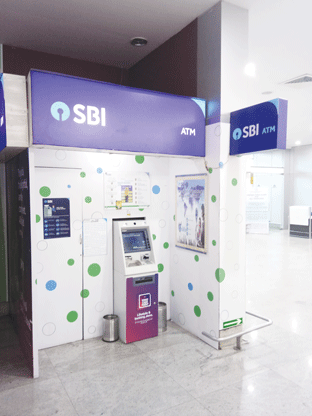LOOT: Nationalised banks, which were looked upon as the safest avenue for savings, offering an interest rate of as much as 15%, have now started stealing from the people for services, even imposing a charge of Rs10 on cash withdrawal of more than Rs10,000.
By Anshul
All the bank service charges of the nationalised banks have been raised from January 1, 2022. This includes the fees on the use of debit/credit cards and ATMs. All beneficiaries of employees Provident Fund are also required to include a nominee to inherit the amount in the PF account upon demise of account holder.
January 2022 is significant from a personal finance point of view as a bevvy of changes will come into effect ranging from new debit/credit card rules to change in ATM charges.
EPF benefits to stop if customers fail to add nominee
Employees Provident Fund (EPF) account holders will need to add a nominee by December 31. If this is not done, the employees will lose on several benefits.
Only, nominated members can withdraw the EPF savings in the event of subscribers’ sudden demise. Subscribers can nominate more than one nominee and also fix the percentage of sharing among all such nominees.
To avail EPFO’s online nomination facility, subscribers must have an active Universal Account Number (UAN) and Aadhaar details should have been seeded to subscribers’ EPF account.
Debit and credit card rules change from January 1
Debit and credit card rules for online payments will change from January 1, 2022 as the Reserve Bank of India (RBI) has asked merchants and payment gateways to remove sensitive customer data on cards saved on their end from next year. Instead, these gateways will use encrypted tokens to carry transactions
This new rule, according to the central bank, will make online payments more secured.
RBI issued these guidelines in September 2021 giving companies the time till this year to comply with the new ‘tokenisation’ regulations.
Banks to charge more for ATM transactions from January 1
Customers will have to pay more if they exceed the free ATM transaction limit from January 1, 2022. This development come on the back of Reserve Bank of India (RBI) order that permitted banks to increase charges for cash and non-cash ATM transactions beyond the free monthly permissible limit.
The central bank, in a June 2021 order, allowed banks to increase charges on ATM transactions to Rs 21 per transaction after people have exhausted the free transaction limit from January 1, 2022.
However, the customers will be allowed five free transactions, including financial and non-financial ones on a monthly basis from their own bank ATMs and they will be able to conduct three free transactions from ATMs of other banks in metro cities.
Cash deposit above Rs 10,000 to not be free in India Post Payments Bank (IPPB) from January 2022
India Post Payments Bank (IPPB) account holders will have to bear charges on depositing cash in their accounts from the next year, if they exceed the prescribed limit.
In the savings (other than Basic SA) and current accounts, the cash deposits will be free up to Rs 10,000 per month and thereafter, a charge of 0.50 percent of the value subject to minimum Rs 25 per transaction will be levied.
ITR filing deadline ends on December 31
The government has extended the income tax return (ITR) filing deadline for the fiscal year 2020-21 to December 31, 2021, failing to do which may result in penalty.
In simple words, this means that customers filing ITR from January 1 for FY20-21 will have to pay certain penalty.
Last date to submit Jeevan Pramaan Certificate ends on December 31
The deadline for government retirees to submit their annual life certificate, also known as Jeevan Pramaan Patra, will also end on December 31, 2021. It is critical for retirees to submit their life certificates on time in order to continue receiving their pension.
Coutersy; cnbctv18
